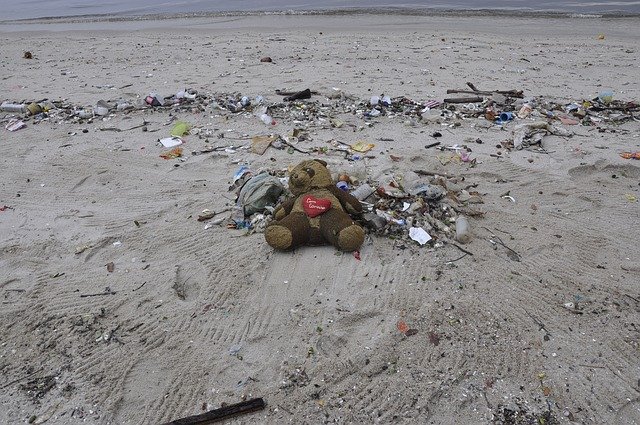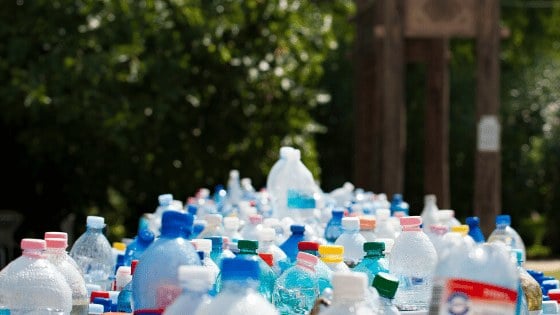
Waste Management Problems In Australia 🌏 – And Innovative Implementations
Waste Management Problems In Australia 🌏: There have been a plethora of problems here in Australia these past few years. In fact, this year is no exception; with the COVID-19 pandemic (which, thankfully, now is being controlled), many businesses came to a halt.
Waste management companies are no exception. With the strict implementation of the lockdown and social distancing regulations, for some time, waste management and recycling rates drastically dropped down. So, this created a waste problem here in Australia, as well as the whole world. You can more of it on our blog titled “Covid-19 Plastic waste“.
But, as I have mentioned above, waste management problems here in Australia did not start in this period. Environmental and waste management challenges have been around for quite a while now. Let us have a more in-depth discussion in the following sections below.
>Download Now: Free PDF Business Owners Guide To General Waste Bin Services
A Bit About Waster
Before I discuss the various waste management problems here in Australia, let me share with you more information about Waster.
We here at Waster provide you with innovative solutions for you and your business’s waste management and recycling needs. Furthermore, we provide flexible, 30-day contracts instead of the typical lock-in contracts, which proves to be better.
Click on the blue button to learn more.
READ: A Simple Waste Management Plan For A Small Business In 2020 📄
What Are The Waste Management Problems In Australia?
There are a wide variety of environmental and waste management challenges here in Australia in the past couple of years up until this day.

Initially, this all started with China’s National Sword Policy last 1 January 2018. If you have read our blog titled China waste problem, they have implemented a number of ways to reduce single-use plastic and completely control it by 2025. And, as you may have guessed, it all started from the policy more than 2 years ago.
As a result, the state of Australian waste management and recycling went into disarray. They even went as far as to export waste to Southeast Asian countries like Indonesia, Malaysia, and the Philippines. You can read more of this in our blog titled “Australia waste export“.
Even without the transportation of these events, further research suggests that waste management problems here in Australia will still occur.
The latest waste reports in 2016-2017 state that Australians produce 67 million tonnes of waste each year, with 54 million tonnes of it being “core waste”. However, with large amounts of waste generated, we can still find some good news to come along with it. In 1996, Australia’s recycling rate was an abysmal 7 per cent; but, in 2016-2017, it has since then skyrocketed to 58 per cent. According to inside waste, this is really impressive given the fact that Australia does not have a domestic Energy from Waste industry, which boosts recycling rates by over 90 per cent, currently utilised by European countries.
However, that is obviously not enough. There are a number of reasons why waste management problems are rampant in Australia. I will state two:
1. The growing Australian population
It does not take a genius to know that more people equates to more waste generated. We are already having problems with our recycling rates, and we will continue to have one with the growing population.
This can especially cripple the efforts done in increasing recycling rates and diverting waste from landfills. In fact, according to inside waste, Australia landfilled 21 metric tonnes of waste in 1996.
In 2019, Australia still landfilled more than 21 metric tonnes of waste even with all of the programmes dedicated to increasing recycling and resource recovery rates. So, that in itself is quite a predicament Australia is facing.
2. Landfills containing recyclable materials
Another waste management problem here in Australia is that many of our recyclable materials end up in a landfill. Only metals and masonry materials have a rather high recycling rate, with the former being 90 per cent and the other being 72 per cent.
Other materials, like organics and plastics, have low recycling rates because of one main reason: marketability.
“There is a significant failure of recycling and waste economics in Australia,” as stated by inside waste.
Unfortunately, a majority of Australian recycling is subsidised by someone. One example of a material that has sufficient economic value to recycle itself is metal. Other than that, the materials are rather limited. In layman’s term, the value of recycled metal is higher than the cost of collection and processing.
Therefore, this creates a chain of events that devalue other recyclables, prompting people to send them into a landfill, instead. Think about it this way: would you recycle your waste if sending it to a landfill is much cheaper?
Innovative Implementations In 2020 To Counter Waste Management Problems In Australia
Now, Australia has to stand on its own two feet; no more exporting to China and other Asian countries.
Domestic innovative solutions must be implemented to counter the ever-growing waste management needs.
Here, I state some solutions:
1. Increase recyclables found in the market
Australia must develop a circular economy which includes the re-utilisation of recyclable materials. Furthermore, it must not be subsidised by someone, as mentioned above. They must be made marketable to promote and increase recycling rates in Australia.
Usage of recycled materials in production must be encouraged. By making this happen alongside building a market for them, demands for recyclable materials over time will increase substantially.
Additionally, manufacturers should carefully produce their packaging thinking of the environment. They must produce easily separated packaging, as well as recyclable.
This does not solely fall to the hands of the government and corporations, but it also falls to the hands of the average Australian citizens. They should make better choices in regards to being sustainable. They should choose to buy recycled goods. This will then create a butterfly effect of some sorts. More people buying recycled goods means bigger markets for said recycled goods.
To cap it all off, all people – regardless of status, must take initiative.
2. Promote local recycling
We can counter waste management problems in Australia if we especially implement this. Now that China no longer takes our trash and process it for us, we must bolster our local recycling solutions.
The Council of Australian Governments has already taken an initiative regarding this and banned the export of many recyclables including glass, plastic, paper and cardboard, and tyres over the next two years.
This will prompt waste management bodies and private companies to improve their recycling services.
Some improvements should include the following: properly labelling bins, educating people on best waste management practices, and incentivising regulators and waste services providers to promote effective and efficient recycling, to name a few.
Waste Management Problems In Australia: Conclusion
Waste management and recycling problems keep growing year by year. But, solutions just as well are being implemented to counter the problem. This is all in order to divert waste from landfills and promote recycling and resource recovery.
By the year 2025, expect a more sustainable Australia with all the rules and regulations being implemented.
Watch this video for more information in recycling:

Waster: Things You Need To Know
If you’re looking for recycling bins, check our waste recycling shop and find the best deals in terms of pricing and services.
Also, please call 1300 WASTER (1300 927 837), or email us at enquiries@waster.com.au if you have any further questions.
Leave a Reply Cancel reply

Product categories
Most Popular Posts
-
Commercial Waste Management Services: Reduce Waste Collection Costs! 🚍
-
Medical Waste Disposal: Everything You Need To Find Out In 2024! 💉
-
Rubbish Removal Sydney 2024: Better Bin Collections For Business ✅
-
Clinical Waste Disposal 2024: What To Know About Business Clinical Waste ⚕️
-
Secure Document Destruction 2024: All About Security Bins Shredding 🔒
-
Free Cardboard Recycling 2024: Can I Get Free Cardboard Collection? 📦
-
Confidential Paper Disposal Bins 2024: What You Need To Know About Shredding! 🔒
-
Recycling Bins Australia 2024: Recycling Can Boost Your Profits! ♲
-
Commercial Wheelie Bin Collection: What Businesses Need To Know In 2024 🗑️
-
Commingled Recycling 2024: Why Commingled Bin Is Key To Recycling 🍾













